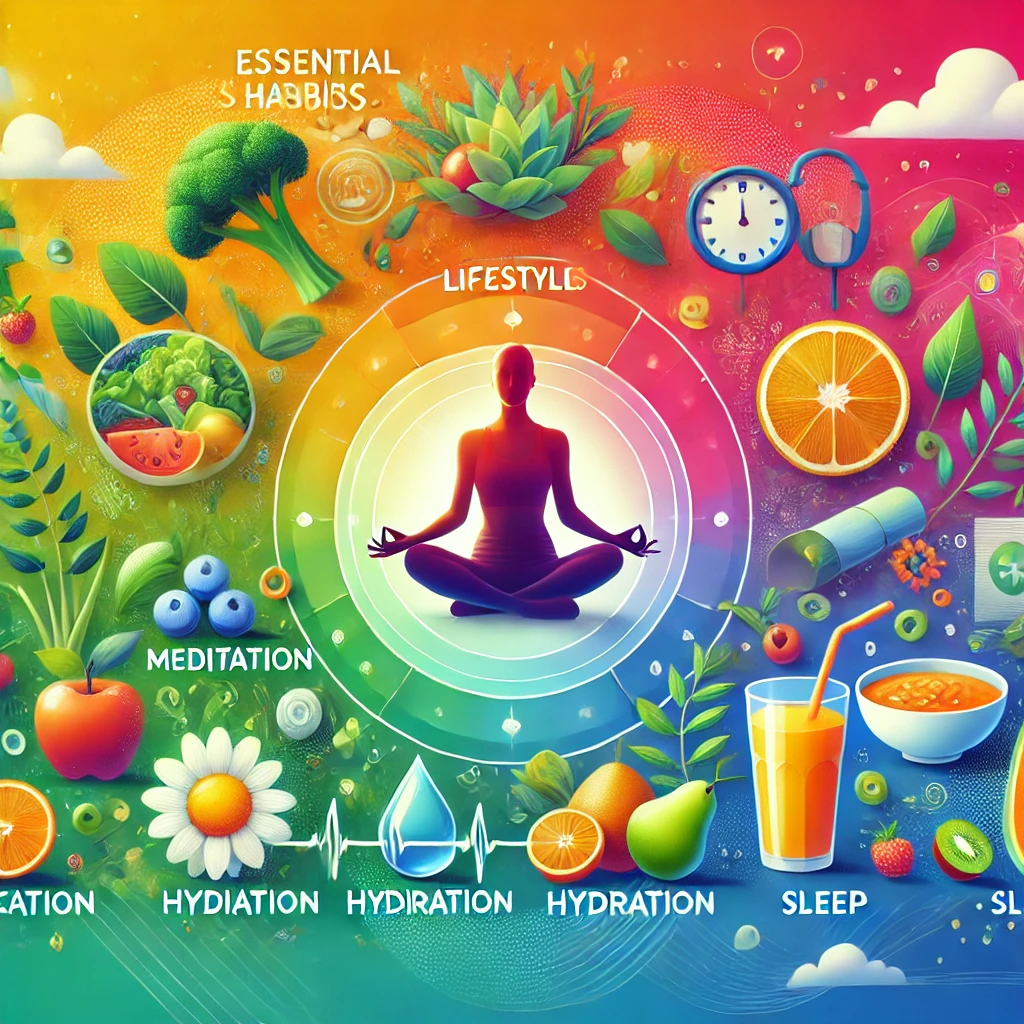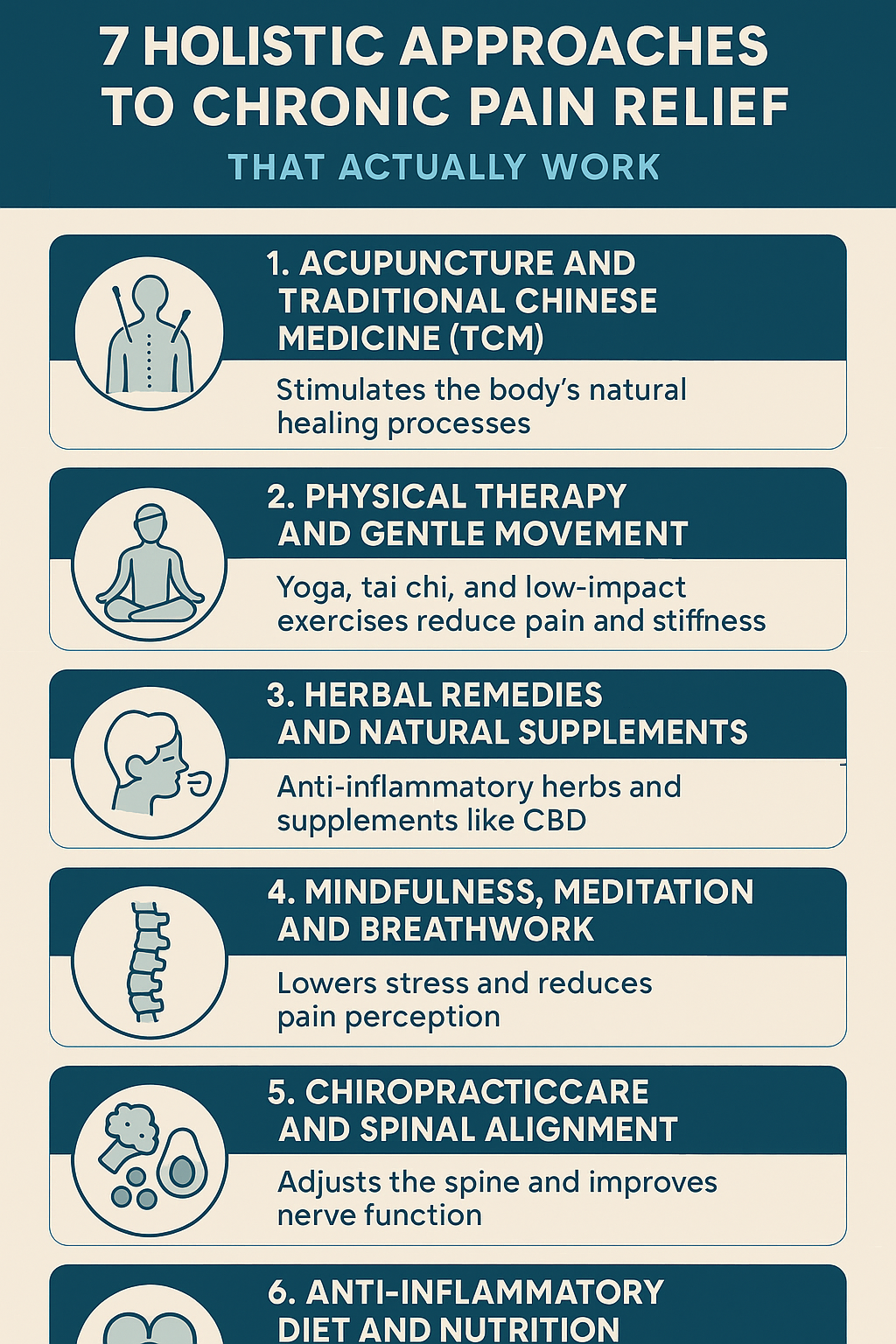Introduction
Maintaining good health is more than just eating right or hitting the gym occasionally. True wellness is about cultivating sustainable habits that promote physical, mental, and emotional well-being. In this guide, we’ll explore ten essential habits that can help you lead a healthier life.
1. Prioritize a Balanced Diet
A well-balanced diet is the foundation of good health. Focus on whole, nutrient-dense foods such as vegetables, fruits, lean proteins, and whole grains. Reduce processed foods and excessive sugar intake to keep your body fueled with the right nutrients.
Quick Tip: The Mediterranean diet is one of the healthiest eating patterns, emphasizing healthy fats, whole grains, and fresh produce. Learn more about the Mediterranean diet
2. Stay Hydrated
Water plays a crucial role in digestion, circulation, and detoxification. Aim for at least 8 glasses of water daily, but adjust based on your activity level and climate.
Quick Tip: Infuse your water with lemon, cucumber, or mint to make hydration more enjoyable.
3. Get Enough Quality Sleep
Poor sleep can lead to weight gain, stress, and reduced immune function. Strive for 7-9 hours of quality sleep each night to allow your body to recover and function optimally.
Quick Tip: Avoid screens at least an hour before bed to improve sleep quality.
4. Engage in Regular Physical Activity
Exercise is key to maintaining a healthy weight, strengthening muscles, and improving cardiovascular health. Whether it’s walking, yoga, or strength training, find an activity you enjoy and stick to it.
Quick Tip: Aim for at least 150 minutes of moderate exercise per week.
5. Manage Stress Effectively
Chronic stress can lead to various health issues, including high blood pressure and weakened immunity. Practice mindfulness, meditation, or deep breathing exercises to stay calm and focused.
Quick Tip: Journaling or practicing gratitude daily can significantly reduce stress levels.
6. Build Strong Social Connections
Human interaction plays a vital role in mental well-being. Engage with family and friends, participate in social activities, and build a support system to enhance emotional health.
Quick Tip: Schedule regular catch-ups with loved ones to maintain strong relationships.
7. Maintain Good Hygiene
Proper hygiene habits, such as handwashing and oral care, prevent infections and diseases. A simple routine can go a long way in maintaining overall well-being.
Quick Tip: Replace your toothbrush every three months to avoid bacterial buildup.
8. Avoid Harmful Substances
Limit alcohol consumption and avoid smoking or recreational drugs. These substances can have severe long-term effects on your body and mind.
Quick Tip: If you’re struggling with quitting smoking, seek professional help or use nicotine replacement therapy.
9. Schedule Regular Health Checkups
Preventative healthcare is essential for catching potential issues early. Visit your doctor for routine checkups, screenings, and vaccinations.
Quick Tip: Keep a record of your medical history to track progress and changes over time.
10. Practice Mindfulness and Gratitude
Being present and expressing gratitude can improve mental health, reduce stress, and boost overall happiness. Take a few minutes each day to reflect on what you’re thankful for.
Quick Tip: Start a gratitude journal to cultivate a positive mindset.
FAQs
1. How long does it take to build a new healthy habit?
It typically takes 21 to 66 days to form a new habit, depending on consistency and commitment.
2. Can small lifestyle changes make a difference in overall health?
Yes! Small, consistent changes such as drinking more water or walking daily can have significant long-term health benefits.
3. How can I stay motivated to maintain healthy habits?
Set realistic goals, track your progress, and find a support system to keep yourself accountable.
4. What’s the best way to manage stress naturally?
Practices like meditation, exercise, deep breathing, and social interaction can help manage stress effectively.
5. Is it necessary to follow a strict diet for good health?
No, balance is key. A flexible approach that includes whole foods and occasional treats is more sustainable.
Conclusion
Adopting a healthier lifestyle doesn’t mean making drastic changes overnight. By incorporating these ten habits gradually, you can improve your physical and mental well-being and enjoy a longer, healthier life. Start with small steps and stay consistent!





